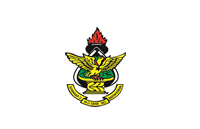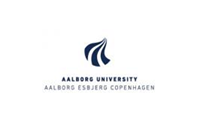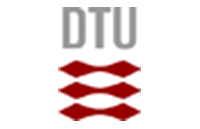Ghana-Denmark Pilot Research Cooperation Programme (PRCP) 2012 Project Title: ‘Strengthening root and tuber value chain in Ghana’
Project Title: ‘Strengthening root and tuber value chain in Ghana’
Click now to visit project website.
Roots and Tuber Value Chain Project
The GHANA-DENMARK PILOT RESEARCH COOPERATION PROGRAMME (PRCP) - 2012 is a collaborative research effort between Kwame Nkrumah University of Science and Technology (KNUST) and a consortium of three (3) Danish Universities (Technical University of Denmark, Aalborg University and University College of Nordjylland) to strengthen the root and tuber value chains in Ghana. The project starts from March 2013 and ends in February 2016, and has financial support from Danish Ministry of Foreign Affairs (MFA) and administered by DANIDA Fellowship Center (DFC)-Denmark.
Background
Agriculture contributes about 30% to Ghana’s GDP and root and tubers contribute about 50% to agricultural GDP.Root and tubers are grown by about 55% of farmers in Ghana and it is estimated that about 90% of people who market and process root and tubers into various forms are women. The end uses of root and tuber crops make them an important component of a targeted strategy for improving the welfare of poor women.
Currently, there is limited empirical knowledge on the performance of the entire root and tuber value chain in Ghana. This Pilot Research Project seeks to have a holistic view of the value chains of the four main root and tuber crops (cassava, yam, cocoyam and sweet potato) in Ghana.
It is a 36 months-long research project aimed at building research capacity through a comprehensive analysis of the entire root and tuber value chain by employing integrated value chain methodologies. In other words the project is to contribute to national research capacity by providing scientific knowledge, solid baseline data, and methodologies to monitor performance of root and tuber value chains in Ghana.Scientific knowledge generated from this project will help promote the growth and performance of the Ghanaian root and tuber sector to engender employment generation, improve incomes and household food security in the long term.
Immediate Objectives
- Map out the root and tuber value chain, identify stakeholders and assess the institutional settings (i.e. roles, environmental/economic/social impacts and chain governance issues).
- To identify and examine socio-economic, production, technological, processing and marketing constraints in specific root and tuber value chains.
- To develop and test proposals that address technological, processing and marketing constraints faced by actors in the root and tuber sector.
- To test and improve on existing root and tuber products for convenience and consumer preference.
- To develop new/novel products from each of the four chosen root and tuber crops to broaden the utilization base of these crops in Ghana.
- Develop and test business models for the newly developed root and tuber products in existing and new markets.
- Build research capacities of PhD and MSc students and the business capacities of actors in the root and tuber value chain.
- To disseminate scientific knowledge obtained from the project through publications, workshops, and conferences, among others.
Main outputs
- Research capacity of Faculty staff, postgraduates and key stakeholders in the root and tuber chain built
- Two PhD and 5 MSc Degrees achieved
- Scientific publications in peer-reviewed national and international journals (12), Policy briefs (4) and newsletters (bi-annual) published
- Analysis of consumer preference and acceptance of existing root and tuber products conducted
- Stakeholders identified, roles examined and patterns of governance and power resources determined
- Environmental, economic and social impact within the chains evaluated
- Constraints in primary production, processing and marketing evaluated and prioritized
- Proposals for solution(s) to constraints in primary production, processing, marketing and consumption developed and tested
- Two existing products and two novel products from each root and tuber crop improved/developed and tested
- Costs, returns, and economic efficiency examined along different root and tuber crop value chains
- Business models for new root and tuber products developed and tested in new and existing markets
- Presentations at conferences (at least 6 conferences) and food demonstrations (four) at various national and regional events done
- User manuals and training modules for stakeholders completed and tested (at least 6).
Work Packages
The project is divided into five, thus
- WP1-Market, Value chain & Constraints analysis
- WP2-Proposals for solution to constraints
- WP3-New product Development
- WP4-Capacity building and dissemination
- WP5-Project administration/management.
In addition to researchers from the consortium of Danish universities, the project draws researchers from three key Departments at KNUST namely; Department of Agric. Economics, Agribusiness & Extension, Dept. of Food Science and Technology and KNUST Business School.The project has an Advisory Committee to provide broad guidance on relevance, scientific direction and to facilitate research communication and dissemination.
Danish Partners
The project is a partnership between Kwame Nkrumah University of Science and Technology (KNUST)-Ghana and a consortium of three (3) Danish Universities:
- Technical University of Denmark. DTU Management Engineering, Division Quantitative Sustainability Assessment. Building 424, Produktionstorvet, DK-2800 Kgs. Lyngby, Denmark.
Coordinator for Danish Group: Assoc.Prof. Arne Wangel, arwa@dtu.dk
- Aalborg University. Department of Development and Planning, Research Group Foodscapes, Innovation and Network A. C. Meyers Vænge 15 2450 København, Denmark
- Contact Person: Assoc. Prof. Thorkild Nielsen, tn@plan.aau.dk
University College of Nordjylland. Department of Marketing, Export and Technology. LindholmBrygge 35, 9400 Nørresundby, Denmark
Contact: Assistant Professor Anne Lassen, alas@ucn.dk
Project Team
| Project Team- Ghana | Project Team- Denmark |
|
Dr. Robert Aidoo (Principal Investigator) Dept. Agric Economics, Agribusiness & Extension, KNUST E-mail:badubob@yahoo.co.uk |
Arne Wangel (PhD), Assoc. Professor, DTU, Denmark E-mail:arwa@dtu.dk |
|
Dr. Faustina Dufie Wireko-Manu Dept. of Food Science & Technology, KNUST E-mail:fdbaah@yahoo.com |
Thorkild Nielsen (PhD), Assist. Professor, Aalborg University, Denmark E-mail:tn@plan.aau.dk |
|
Dr. Kwasi Ohene-Yankyera Dept. of Agric Economics, Agribusiness & Extension, KNUST E-mail:koyanky@gmail.com |
Anne Lassen (MSc), Assist. Professor, University College Nordjylland, Denmark E-mail:alas@ucn.dk |
|
Assoc. Professor Ibok Oduro Dept. of Food Science &Technology, KNUST E-mail:inoduro.sci@knust.edu.gh |
Olav Jull Sørensen (PhD) Professor, Aalborg University E-mail:ojs@business.aau.dk |
|
Mr. Samuel Akomea Lecturer/Legal Practitioner, School of Business, KNUST E-mail:samakomea@yahoo.com |
Ioannis Chornakis (PhD), Assoc. Prof., DTU, Denmark E-mail: ioach@food.dtu.dk |
|
Professor Robert Clement Abaidoo College of Agriculture and Natural Resources, KNUST |
Niels Heine Kristensen (PhD) Professor, Aalborg University E-mail:nhk@plan.aau.dk |
|
Project Administrative Assistant Stanley Boakye-Achampong E-mail:boakyeachampongstanley@yahoo.com; valuechainproject@gmail.com Contact numbers: 0262368585/ 0244544929 |

|

|

|

|

